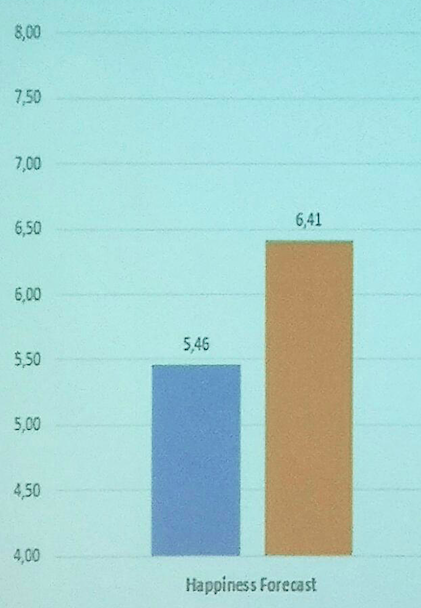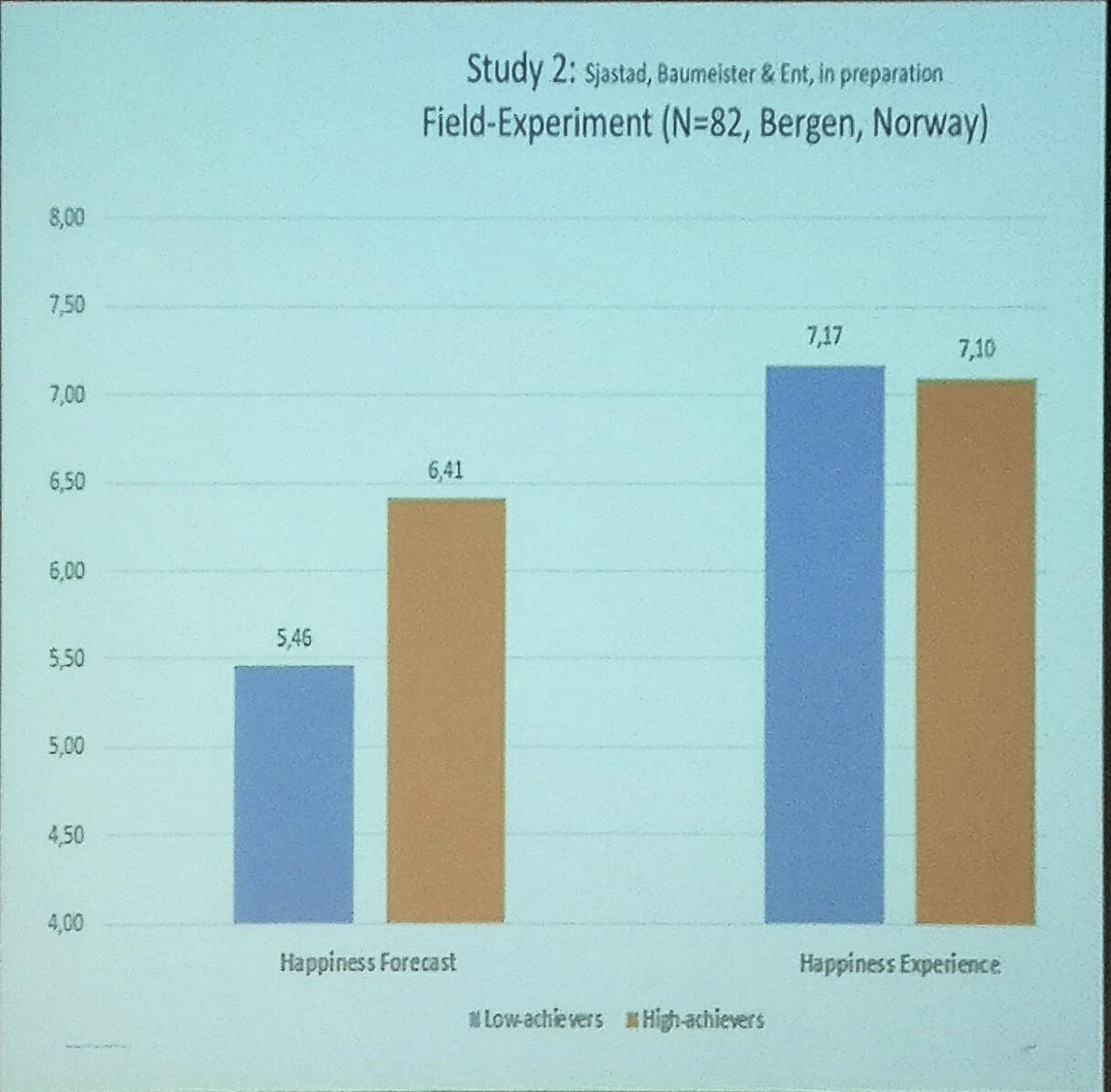I just attended a lecture by Roy Beaumeister. It was a wide ranging talk about the past, the future, and how predictions and prospections of the future influence decision making. One experiment that Roy spoke of piqued my interest when considering it in relation to what I’ve seen with my students, and their motivation, in the classroom.
The experiment had two conditions (let’s call them red and blue). To start off with, individuals in both conditions were asked to answer six questions. However, the results were rigged such that individuals in the blue condition were told that two of their answers were correct, and those in the red condition were told that five of their six answers were correct. Then all subjects were asked to make a happiness forecast, they were asked a question like ‘We’re now going to give you six similar questions, how happy do you think you’d be next time if you got all six correct’*. Their happiness forecasts can be seen in the image below.
That is, individuals who only got two questions correct the first time (blue) said something along the lines of ‘oh yeah, I guess I’d be kinda happy if I got all of the correct’, whereas those who got five correct the first time, and thought they had a pretty good chance of getting six correct, said something like ‘oh yeah, I’d be really quite happy to get six correct!’.
Then came the moment of truth. All were again presented with six questions and this time all participants were told that they got all six questions correct! So… how happy were they? Here are the results.
When looking at this graph I thought about my own classroom. I thought about all of the students over the years who have said ‘I hate maths’ or ‘I don’t care about this anyway’. Could it be that it isn’t that these students don’t care, it isn’t that they hate maths, it’s just that they rate their chances of success so low that it’s a pragmatic decision for them to assume that they don’t care? This could in fact be a rational and calculated decision on their part that aims to lessen the pain of anticipated failure. Beaumister alluded to one of Aesop’s Fables
An hungry Fox with fierce attack
Sprang on a Vine, but tumbled back,
Nor could attain the point in view,
So near the sky the bunches grew.
As he went off, “They’re scurvy stuff,”
Says he, “and not half ripe enough–
And I ‘ve more rev’rence for my tripes
Than to torment them with the gripes.”
For those this tale is very pat
Who lessen what they can’t come at.
It’s not that they don’t care, it’s that they don’t think they can succeed. It’s our job as teachers to teach in such a way that these students experience success and, bit by bit, they’ll come to value success higher because they’ll believe it’s achievable, and they’ll be willing to invest more effort to attain it. The good news is, as the right two columns of the graph show, the further behind the students come from, the more they’ll enjoy the achievement when they get there!
*I’ve recounted this experiment as well as I can remember, but this is currently in press so I wasn’t able to go over it to fact check my recollection of Roy’s explanation of the study.

